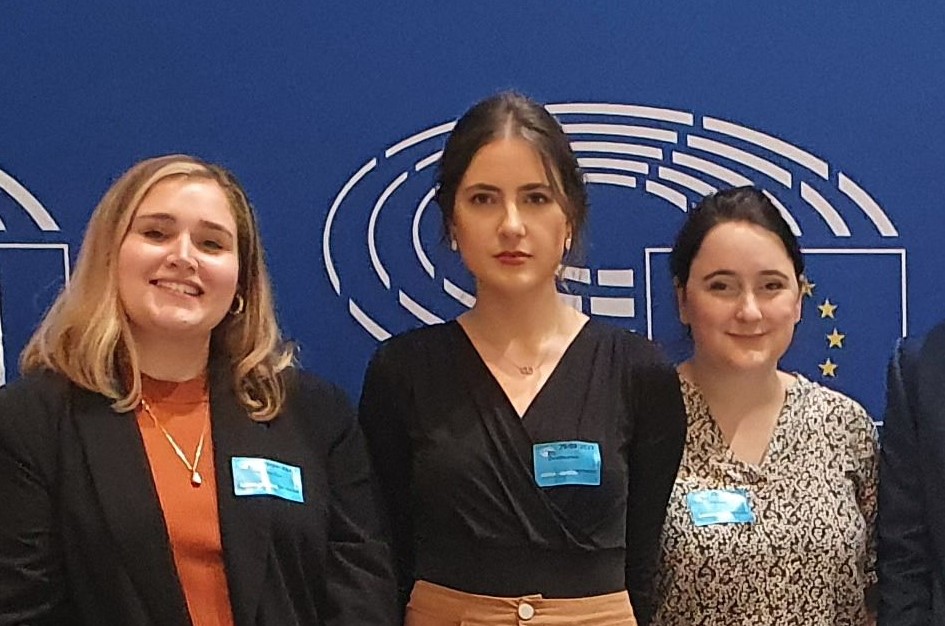As a patient myself, I am painfully familiar with the daily challenges that young patients living with allergies and asthma have to face, as a result of their exposure to poor air quality. By incorporating their voices into the debate, we can create an effective air quality framework that prioritize the health and future of the younger generation.
This is one of the reasons why I joined the European Allergy & Asthma Youth Parliament ran by EFA. I would like to propose the European lawmakers to consider the following youth-oriented aspects when reviewing the air quality directives:
- The inter-generational dimension
Today's children and young adults are those who will experience the long-term effects of environmental degradation, including air pollution. It is imperative to recognize that the pollutants produced today can linger in the atmosphere for extended periods of time, making the need for clean air a pressing concern for the younger generation. By acknowledging this inter-generational dimension, we can foster a sense of responsibility among in society and policymakers to act swiftly and decisively in implementing measures that reduce pollution and protect the health of future generations.
- Harnessing young people's technological aptitude towards better access to air quality information
Young people possess a unique aptitude for technology and are skilled in using electronic means and digital applications. A fully-fledged network of real-time information on air quality, can be supported by national air quality indices providing real-time air quality updates via digital means, among others. Through access to information, Europe can empower young patients to make informed decisions about their daily activities, avoid high-pollution areas, and take necessary precautions to protect their health.
- Disproportionate disease burden on children and young adults
Children and young adults bear a high disease burden resulting from poor air quality: they tend to spend more time outside, they have higher rates of breathing but also narrower airways. These factors make them more vulnerable to diseases resulting from air pollution, such as allergy and asthma, as compared to adults. For this reason, too, aligning EU standards with the latest health-based recommendations of the World Health Organization (WHO) is of utmost importance. By prioritizing the well-being of the younger generation and aligning standards with WHO recommendations, we can ensure that the air they breathe is safe and conducive to their growth, development, and overall health.
With these considerations in mind, the European Allergy & Asthma Youth Parliament is putting forth several key requests to improve EU air quality standards and policies. These include:
- Swift action for full alignment with WHO Air Quality Guidelines (2021): We urge the EU to strive for full alignment with the WHO's Air Quality Guidelines at the latest by 2030. This alignment will provide a robust framework for establishing air quality standards that prioritize public health and environmental well-being.
- Targeted public information on air quality: It is essential to provide comprehensive and easily accessible information on air quality, including health-related messaging and advice particularly tailored to vulnerable groups. By tailoring public information campaigns to address the specific concerns of young patients, we can ensure they have the knowledge and tools to protect themselves from harmful pollutants.
- Patient involvement in decision-making: Young patients should have a say in shaping action plans and policies related to air quality. By involving them in decision-making processes, but also in all public debates on air pollution, we can benefit from their unique perspectives and experiences, ensuring that their needs are adequately addressed.
- Improved access to justice and compensation for health damages from air pollution: Individuals and organisations affected by air pollution must have, finally, an openpath to justice. By establishing mechanisms for seeking compensation and holding polluters accountable, we can send a clear message that the health and well-being of young patients must be safeguarded.
In view of the crucial Plenary vote on 13 September, we call the Members of the European Parliament to vote in favour of the report of the ENVI Committee and ensure a solid consensus in favour of the above principles, which are critical in addressing the concerns, needs, and skills of young patients living with allergies and asthma. By embracing an inter-generational perspective, leveraging technological advancements, and prioritising the health of children and young adults, we can shape effective air quality guidelines that protect the well-being of future generations. Let us seize this unique opportunity to make the voices of young patients heard.

Eimear O’Rourke, Member of the EFA Allergy & Asthma Youth Parliament
I am a medical student, a junior member of the European Academy of Allergy and Clinical Immunology, and a patient advocate. I joined the EFA Allergy & Asthma Youth Parliament in May 2022. Here is my LinkedIn profile.
Learn more about the Youth Parliament on Allergy and Asthma, follow their LinkedIn page and apply to become a member.

